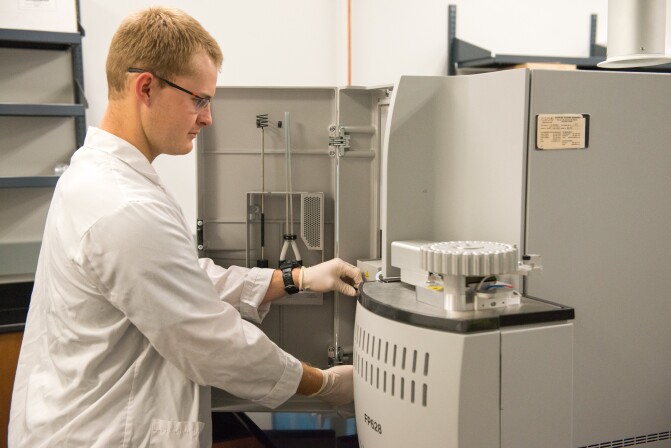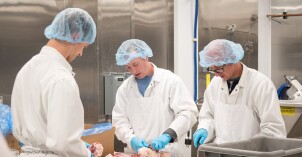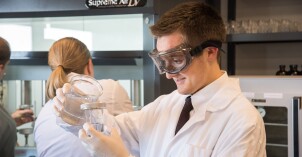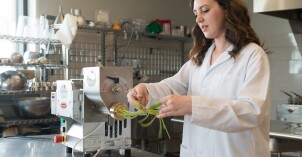
Gain Hands-On Experience
Food Science is the use of science and engineering principles to study food, its preservation, and processing. The Food Science degree prepares students to work in food product development, food processing, quality assurance, and regulatory agencies in food safety, or to enter graduate school. With proper emphasis and course selection, students can also prepare for entrance into dietetic or health science programs. Students in this program will study food chemistry and microbiology; food processing and safety; and the analysis of food using chemical, physical, and sensory techniques.
This emphasis offers a less rigorous math/science option for those students singularly seeking an entry-level job in the food industry. This option does not prevent an individual from pursuing a graduate degree, though some make-up of deficient courses during graduate study might be required depending on the graduate program.
This emphasis offers a less rigorous math/science option for those students singularly seeking an entry-level job in the food industry. This option does not prevent an individual from pursuing a graduate degree, though some make-up of deficient courses during graduate study might be required depending on the graduate program.
Highlighted Career Paths
Graduates with a degree in Food Sciences with an emphasis in Technology have a wide array of rewarding careers before them. Check out some of the top careers students get with this degree or explore more career options in I-Plan.
Food Product Development
Collaborate with a team to create new or improve existing food products with respect to novelty, quality, safety, affordability, and/or nutritional content.
Quality Assurance/Food Safety
Monitor and ensure the quality and safety of food products for consumer markets utilizing scientific methods and techniques.
Sensory Science
Apply principles of sensory evaluation (taste testing) to characterize food attributes (aroma, taste, texture) and test food products for consumer appeal.
Food Processing/Engineering
Oversee/manage daily plant operations; improve and design efficient, sustainable food processes and packaging operations; scale up new processes/products for large-scale plant production.
Research
Conduct research in a university, government, or industry setting to develop new technologies, ingredients, or processes that enhance the quality, safety, and nutrition of foods.
Regulatory
Work within a government agency (e.g., FDA, USDA) to ensure safe and adequate processing of food products and to help establish public policy that improves food safety and quality.
Getting Started in this degree
If you are interested in Food Sciences Technology, start with one of the following major-specific courses



